SCIENCE FORUM
Giant palm tree seen from space

Botanists have discovered a new species of giant self-destructing palm that is so large it can be seen in satellite photos. The plant, which only exists in the remote northwest of Madagascar, is unlike anything found on the island before. The palm is 20m high with leaves 5m long, though for most of its life -- around 100 years -- it is fairly unremarkable apart from its size. No-one had seen it bloom till last year. When it finally did so, botanists found that the tree expended so much energy on its extraordinary flowering pattern that it died!
US decision on polar bear status on hold

Missing their Jan 9, 2008, deadline, US officials have delayed their decision on whether polar bears should be listed as threatened under the Endangered Species Act, saying they need more time to assess climate threat. Unlike previous assessments, the status of the bears relies heavily on climate change and the future of the planet's Arctic ice -- factors that officials say make the assessment more complicated.
Monkey’s thoughts make robot walk
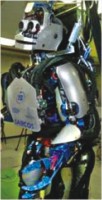
A 12-pound, 32-inch monkey in North Carolina has made a 200-pound, 5-foot humanoid robot walk on a treadmill in Kyoto, Japan, using only her thoughts. It is the first time that brain signals have been used to make a robot walk, say neuroscientists at Duke University. The experiment, they say, may lead to a brain-machine interface that could make paralysed people walk again. Electrodes in the brain would send signals to a cellphone-like device worn on the hip that would relay those signals to a pair of braces -- a kind of external skeleton -- worn on the legs.
Biggest black hole in the cosmos discovered
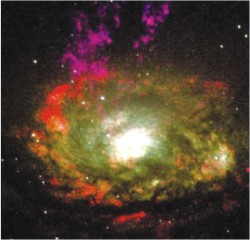
The most massive known black hole in the universe has been discovered, weighing in with the mass of 18 billion Suns. Observing the orbit of a smaller black hole around this monster has allowed astronomers to test Einstein's theory of general relativity with stronger gravitational fields than ever before. The black hole is about six times as massive as the previous record holder and in fact weighs as much as a small galaxy. It lurks 3.5 billion light years away, and forms the heart of a quasar called OJ287.
Macaque monkeys may 'pay' for sex
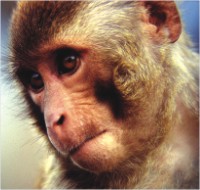
The "oldest profession" seemingly has pre-human evolutionary roots. When the opportunity arises, male macaque monkeys groom females to 'pay' for sex, say scientists in Singapore. Analysing the behaviour of a 50-strong group of long-tailed macaques, they found there was an increase in sexual activity after bouts of male-to-female grooming. On average, females had sex 1.5 times per hour, but immediately after being groomed by a male partner, this rate jumped to 3.5 times per hour. After grooming, the female was also less likely to offer herself to males other than her grooming partner.
Scientists make dead hearts beat again
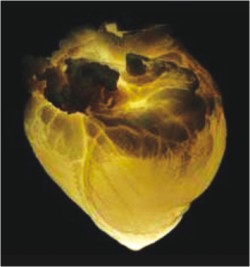
Hearts from dead rats have been used as a 'scaffold' to engineer a bio-artificial heart. The discovery may one day be used to repair heart damage or even generate new ones for transplant. Using a process called decellularisation to wash away existing cells from the hearts, scientists left the basic collagen structure intact. They injected this gelatine-like scaffold with heart cells from newborn rats and left them to grow. Four days later, the hearts started to contract. The researchers used a pacemaker to coordinate the contractions and filled the hearts with fluids. Eight days later, the hearts started to pump.
Mirrors may fool phantom limb pain
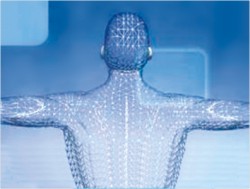
Viewing the reflected image of an intact limb in a mirror can fool the mind into thinking that a lost leg or foot still exists, dramatically relieving phantom limb pain, researchers report. At least 9 out of 10 amputees report feeling pain in the missing limb. The sensation that the arm or leg is stuck in the wrong position can be excruciating and pain drugs often do little to help. Now studies suggest that using a mirror to trick the mind may help. Doctors don't know why it works, but it appears to reconcile sensations coming from the severed nerves.
'Darkest ever' material created
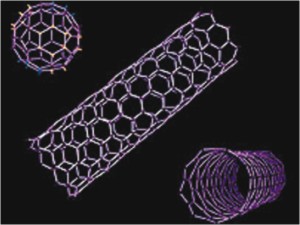
The "darkest ever" substance known to science has been made in a US laboratory. The material was created from carbon nanotubes -- sheets of carbon just one atom thick rolled up into cylinders. Researchers say it is the closest thing yet to the ideal black material, which absorbs light perfectly at all angles and over all wavelengths. The discovery is expected to have applications in the fields of electronics and solar energy.
SCIENCE NEWS
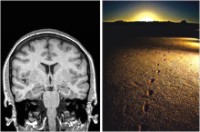
Fears for oldest human footprints
Fossilised footsteps are posing a preservation puzzle, as threats to the world's oldest surviving hominid tracks in Tanzania are again stirring debate over how to best protect the 3.7-million-year-old imprints.
Ageing makes the imagination wither
Memory decline in old age may also mean a less vivid imagination. Old age does more than stealthily steal away our most cherished memories: it also seems to diminish our ability to imagine things, say scientists.
Brain 'seismology' helps predict epileptic attacks
Both start with barely perceptible tremors that lead up to a cataclysmic climaxnow it seems that the similarities between earthquakes and epileptic seizures run deep. Seismology could even hold the key to new ways of predicting and avoiding seizures, says new research.
India aims for 'quantum jump' in science
The Indian government has announced unprecedented funding for science education and research, saying it is a top priority. A range of schemes are being planned to attract students and replenish government agencies' shrinking pool of scientific personnel.
Ancient dinosaur fossil haul returned to China
A 100-million-year-old haul of dinosaur eggs and fossils from China, smuggled illegally into Australia, headed back to Beijing in January. Australian handed over more than 750 kilograms of fossils, estimated to be worth millions of dollars, to Chinese authorities.
The battle of the butterflies and the ants
Parasitic caterpillars illustrate local evolution as never before. Butterflies that trick ants into helping to raise their young are driving an evolutionary arms race between the two species, researchers have found.
Science Forum is compiled and edited by Rashida Ahmad.
Sources : Nature, New Scientist, BBC Online. |









